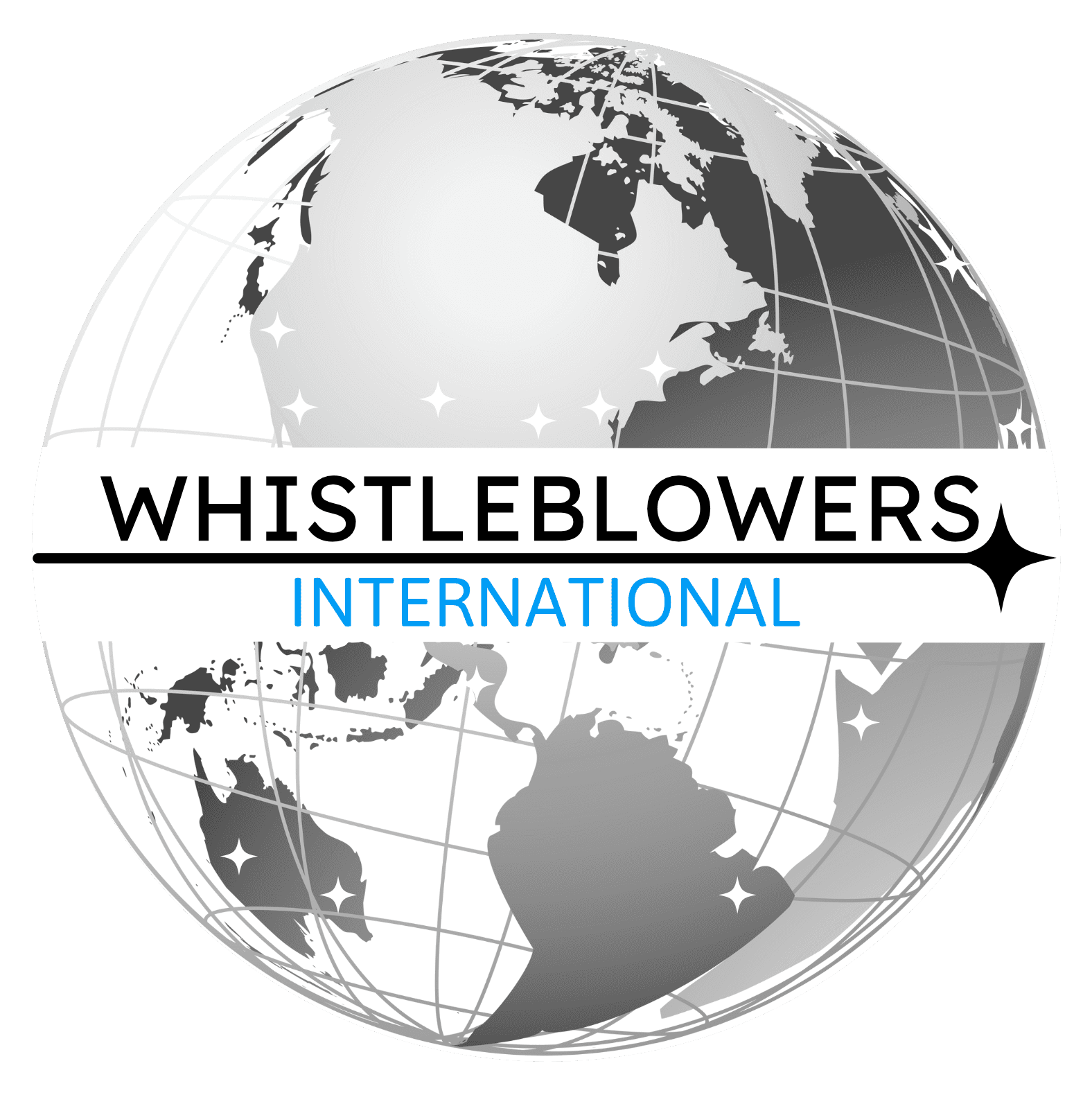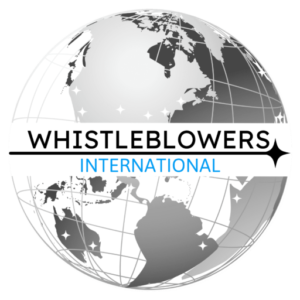ANALOGOUS STATE AND TERRITORY FALSE CLAIMS ACTS
ANALOGOUS STATE AND TERRITORY FALSE CLAIMS ACTS
ALASKA
Alaska has a Medical Assistance False Claim and Reporting Act that applies to frauds affecting the state’s Medicaid program. Like the federal False Claims Act, it used to have qui tam provisions allowing whistleblowers to file a complaint on behalf of the state. After a repeal in 2019, the qui tam provisions no longer exist, and whistleblowers can no longer begin actions on behalf of the state.
ARKANSAS
Arkansas has a Medicaid Fraud False Claims Act that applies to frauds affecting the state’s Medicaid program. Unlike the federal False Claims Act, it does not have qui tam provisions allowing whistleblowers to file a complaint on behalf of the state. Although a person that comes forward with information may receive up to 10% of any recoveries based on their information, whistleblowers cannot begin an action on behalf of the state.
CALIFORNIA
California has a False Claims Act that allows whistleblowers to come forward with information on a wide array of frauds. Although wide in application, frauds involving workers’ compensation and tax frauds are not actionable under this law. Like the federal False Claims Act, it has qui tam provisions allowing whistleblowers to file a complaint on behalf of the state. If a claim is successful, a whistleblower can receive 15-33% of any proceeds if the government intervenes in the action, and 25-50% if it does not. If the whistleblower initiated or planned the fraud, the amounts can be reduced.
COLORADO
Colorado has a Medicaid False Claims Act that allows whistleblowers to come forward with information on frauds affecting the state’s Medicaid program. Like the federal False Claims Act, it has qui tam provisions allowing whistleblowers to file a complaint on behalf of the state. If a claim is successful, a whistleblower can receive 15-25% of any proceeds if the government intervenes in the action, and 25-30% if it does not. If the whistleblower initiated or planned the fraud, the amounts can be reduced.
CONNECTICUT
Connecticut has a False Claims Act that allows whistleblowers to come forward with information on frauds affecting the state’s medical assistance programs, including Medicaid. Like the federal False Claims Act, it has qui tam provisions allowing whistleblowers to file a complaint on behalf of the state. If a claim is successful, a whistleblower can receive 15-25% of any proceeds if the government intervenes in the action, and 25-30% if it does not. If the whistleblower initiated or planned the fraud, the amounts can be reduced.
DELAWARE
Delaware has a False Claims and Reporting Act that allows whistleblowers to come forward with information on a wide array of frauds. Like the federal False Claims Act, it has qui tam provisions allowing whistleblowers to file a complaint on behalf of the state. If a claim is successful, a whistleblower can receive 15-25% of any proceeds if the government intervenes in the action, and 25-30% if it does not. If the whistleblower initiated or planned the fraud, the amounts can be reduced.
DISTRICT OF COLUMBIA
The District of Columbia has a False Claims Act that allows whistleblowers to come forward with information on a wide array of frauds. The statute specifically allows for actions based on tax violations. Like the federal False Claims Act, it has qui tam provisions allowing whistleblowers to file a complaint on behalf of the government. If a claim is successful, a whistleblower can receive 15-25% of any proceeds if the government intervenes in the action, and 25-30% if it does not. If the whistleblower initiated or planned the fraud, the amounts can be reduced.
FLORIDA
Florida has a False Claims Act that allows whistleblowers to come forward with information on a wide array of frauds. Like the federal False Claims Act, it has qui tam provisions allowing whistleblowers to file a complaint on behalf of the state. If a claim is successful, a whistleblower can receive 15-25% of any proceeds if the government intervenes in the action, and 25-30% if it does not. If the whistleblower initiated or planned the fraud, the amounts can be reduced.
GEORGIA
Georgia has a Taxpayer Protection False Claims Act that allows whistleblowers to come forward with information on a wide array of frauds, and a separate False Medicaid Claims Act which covers frauds against the state’s Medicaid program. Like the federal False Claims Act, both have qui tam provisions allowing whistleblowers to file a complaint on behalf of the state. If a claim is successful, a whistleblower can receive 15-25% of any proceeds if the government intervenes in the action, and 25-30% if it does not. These percentages are the same under both acts. If the whistleblower initiated or planned the fraud, the amounts can be reduced.
GUAM
Guam has a False Claims and Whistleblower Act that allows whistleblowers to come forward with information on a wide array of frauds. Like the federal False Claims Act, it has qui tam provisions allowing whistleblowers to file a complaint on behalf of the government. If a claim is successful, a whistleblower can receive 15-25% of any proceeds if the government intervenes in the action, and 25-30% if it does not. If the whistleblower initiated or planned the fraud, the amounts can be reduced. The act has specific provisions for tax frauds. In these cases, a whistleblower can receive between 15-30% of any recovered proceeds if the government intervenes, and not less than 30% if it does not.
HAWAII
Hawaii has two false claims acts that allows whistleblowers to come forward with information on a wide array of frauds. One applies to frauds committed against the state and the other applies to frauds committed against its counties. Like the federal False Claims Act, it has qui tam provisions allowing whistleblowers to file a complaint on behalf of the state or the counties. Under both laws, if a claim is successful, a whistleblower can receive 15-25% of any proceeds if the government intervenes in the action, and 25-30% if it does not. If the whistleblower initiated or planned the fraud, the amounts can be reduced.
ILLIONOIS
Illinois has a False Claims Act that allows whistleblowers to come forward with information on a wide array of frauds. Like the federal False Claims Act, it has qui tam provisions allowing whistleblowers to file a complaint on behalf of the state. If a claim is successful, a whistleblower can receive 15-25% of any proceeds if the government intervenes in the action, and 25-30% if it does not. If the whistleblower initiated or planned the fraud, the amounts can be reduced.
INDIANA
Indiana has a False Claims and Whistleblower Protection Act that allows whistleblowers to come forward with information on a wide array of frauds, and a separate Medicaid False Claims Act which covers frauds against the state’s Medicaid program. Like the federal False Claims Act, both have qui tam provisions allowing whistleblowers to file a complaint on behalf of the state. If a claim is successful, a whistleblower can receive 15-25% of any proceeds if the government intervenes in the action, and 25-30% if it does not. These percentages are the same under both acts. If the whistleblower initiated or planned the fraud, no award is granted to the whistleblower.
IOWA
Iowa has a False Claims Act that allows whistleblowers to come forward with information on a wide array of frauds. Like the federal False Claims Act, it has qui tam provisions allowing whistleblowers to file a complaint on behalf of the state. If a claim is successful, a whistleblower can receive 15-25% of any proceeds if the government intervenes in the action, and 25-30% if it does not. If the whistleblower initiated or planned the fraud, the amounts can be reduced.
KANSAS
Kansas has a False Claims Act that applies to a wide array of frauds. Unlike the federal False Claims Act, it does not have qui tam provisions allowing whistleblowers to file a complaint on behalf of the state. It does not include reward provisions either.
LOUISIANA
Louisiana has the Medical Assistance Programs Integrity Law that allows whistleblowers to come forward with information on frauds affecting the state’s Medicaid program. Like the federal False Claims Act, it has qui tam provisions allowing whistleblowers to file a complaint on behalf of the state. If a claim is successful, a whistleblower can receive 15-25% of any proceeds if the government intervenes in the action, and 25-30% if it does not. If the whistleblower initiated or planned the fraud, the amounts can be reduced.
MARYLAND
Maryland has a False Claims Act that allows whistleblowers to come forward with information on a wide array of frauds, and a separate False Health Claims Act which covers frauds against the state’s Medicaid program. Like the federal False Claims Act, both have qui tam provisions allowing whistleblowers to file a complaint on behalf of the state. If the state decides to not intervene, the action must be dismissed. If a claim is successful, a whistleblower can receive 15-25% of any proceeds. If the whistleblower initiated or planned the fraud the amounts can be reduced. Maryland also has a separate whistleblower tax program. Like the IRS whistleblower program, qualified whistleblowers can submit information to the Office of the Comptroller. If a recovery stems from the submitted information, the whistleblower can receive 15-30% of what is recovered.
MASSACHUSETTS
Massachusetts has a False Claims Act that allows whistleblowers to come forward with information on a wide array of frauds. Like the federal False Claims Act, it has qui tam provisions allowing whistleblowers to file a complaint on behalf of the state. If a claim is successful, a whistleblower can receive 15-25% of any proceeds if the government intervenes in the action, and 25-30% if it does not. If the whistleblower initiated or planned the fraud, the amounts can be reduced or eliminated.
MICHIGAN
Michigan has the Medicaid False Claims Act that allows whistleblowers to come forward with information on frauds affecting the state’s Medicaid program. Like the federal False Claims Act, it has qui tam provisions allowing whistleblowers to file a complaint on behalf of the state. If a claim is successful, a whistleblower can receive 15-25% of any proceeds if the government intervenes in the action, and 25-30% if it does not. If the whistleblower initiated or planned the fraud, the amounts can be reduced or eliminated.
MINNESOTA
Minnesota has a False Claims Act that allows whistleblowers to come forward with information on a wide array of frauds. Although wide in application, tax frauds are not actionable under the statute. Like the federal False Claims Act, it has qui tam provisions allowing whistleblowers to file a complaint on behalf of the state. If a claim is successful, a whistleblower can receive 15-25% of any proceeds if the government intervenes in the action, and 25-30% if it does not.
MISSISSIPPI
Mississippi has a False Claims Act that applies to frauds affecting the state’s Medicaid program. Unlike the federal False Claims Act, it does not have qui tam provisions allowing whistleblowers to file a complaint on behalf of the state. It does not include reward provisions either.
MISSOURI
Missouri has a False Claims Act that applies to frauds affecting the state’s Medicaid program. Unlike the federal False Claims Act, it does not have qui tam provisions allowing whistleblowers to file a complaint on behalf of the state. Although a person that comes forward with information may receive up to 10% of any recoveries based on their information, whistleblowers cannot begin an action on behalf of the state. If the whistleblower initiated or planned the fraud, no reward is granted.
MONTANA
Montana has a False Claims Act that allows whistleblowers to come forward with information on a wide array of frauds. Like the federal False Claims Act, it has qui tam provisions allowing whistleblowers to file a complaint on behalf of the state. If a claim is successful, a whistleblower can receive 15-25% of any proceeds if the government intervenes in the action, and 25-30% if it does not. If the whistleblower initiated or planned the fraud, the amounts can be reduced or eliminated.
NEBRASKA
Nebraska has a Medicaid False Claims Act that applies to frauds affecting the state’s Medicaid program. Unlike the federal False Claims Act, it does not have qui tam provisions allowing whistleblowers to file a complaint on behalf of the state. It does not include reward provisions either.
NEVADA
Nevada has a False Claims Act that allows whistleblowers to come forward with information on a wide array of frauds. Like the federal False Claims Act, it has qui tam provisions allowing whistleblowers to file a complaint on behalf of the state. If a claim is successful, a whistleblower can receive 15-25% of any proceeds if the government intervenes in the action, and 25-30% if it does not. If the whistleblower initiated or planned the fraud, the amounts can be reduced.
NEW HAMPSHIRE
New Hampshire has a False Claims Act that allows whistleblowers to come forward with information on frauds affecting the state’s Medicaid program. Like the federal False Claims Act, it has qui tam provisions allowing whistleblowers to file a complaint on behalf of the state. If a claim is successful, a whistleblower can receive 15-25% of any proceeds if the government intervenes in the action, and 25-30% if it does not. If the whistleblower initiated or planned the fraud, the amounts can be reduced.
NEW JERSEY
New Jersey has a False Claims Act that allows whistleblowers to come forward with information on a wide array of frauds. Like the federal False Claims Act, it has qui tam provisions allowing whistleblowers to file a complaint on behalf of the state. Although wide in application, tax frauds are not actionable under the statute. If a claim is successful, a whistleblower can receive 15-25% of any proceeds if the government intervenes in the action, and 25-30% if it does not. If the whistleblower initiated or planned the fraud, the amounts can be reduced.
NEW MEXICO
New Mexico has a Fraud Against Taxpayers Act that allows whistleblowers to come forward with information on a wide array of frauds, and a separate Medicaid False Claims Act which covers frauds against the state’s Medicaid program. Like the federal False Claims Act, both have qui tam provisions allowing whistleblowers to file a complaint on behalf of the state. If a claim is successful, a whistleblower can receive 15-25% of any proceeds if the government intervenes in the action, and 25-30% if it does not. These percentages are the same under both acts. If the whistleblower initiated or planned the fraud, the amounts can be reduced.
NEW YORK
New York has a False Claims Act that allows whistleblowers to come forward with information on a wide array of frauds. The act has specific provisions for tax frauds. Like the federal False Claims Act, it has qui tam provisions allowing whistleblowers to file a complaint on behalf of the government. If a claim is successful, a whistleblower can receive 15-25% of any proceeds if the government intervenes in the action, and 25-30% if it does not. If the whistleblower initiated or planned the fraud, the amounts can be reduced.
NORTH CAROLINA
North Carolina has a False Claims Act that allows whistleblowers to come forward with information on a wide array of frauds. Like the federal False Claims Act, it has qui tam provisions allowing whistleblowers to file a complaint on behalf of the state. If a claim is successful, a whistleblower can receive 15-25% of any proceeds if the government intervenes in the action, and 25-30% if it does not. If the whistleblower initiated or planned the fraud, the amounts can be reduced.
OKLAHOMA
Oklahoma has the Medicaid False Claims Act that allows whistleblowers to come forward with information on frauds affecting the state’s Medicaid program. Like the federal False Claims Act, it has qui tam provisions allowing whistleblowers to file a complaint on behalf of the state. If a claim is successful, a whistleblower can receive 15-25% of any proceeds if the government intervenes in the action, and 25-30% if it does not. If the whistleblower initiated or planned the fraud, the amounts can be reduced or eliminated.
OREGON
Oregon has a False Claims Act that applies to a wide array of frauds. Unlike the federal False Claims Act, it does not have qui tam provisions allowing whistleblowers to file a complaint on behalf of the state. It does not include reward provisions either.
PUERTO RICO
The False Claims to Government of Puerto Rico Programs, Contracts, and Services Act allows whistleblowers to come forward with information on a wide array of frauds. Like the federal False Claims Act, it has qui tam provisions allowing whistleblowers to file a complaint on behalf of the state. If a claim is successful, a whistleblower can receive 15-25% of any proceeds if the government intervenes in the action, and 25-30% if it does not. If the whistleblower initiated or planned the fraud, the amounts can be reduced. The same can happen if the action is based on easily accessible information
RHODE ISLAND
Rhode Island has a False Claims Act that allows whistleblowers to come forward with information on a wide array of frauds. Like the federal False Claims Act, it has qui tam provisions allowing whistleblowers to file a complaint on behalf of the state. If a claim is successful, a whistleblower can receive 15-25% of any proceeds if the government intervenes in the action, and 25-30% if it does not. If the whistleblower initiated or planned the fraud, the amounts can be reduced.
TENNESSEE
Tennessee has a False Claims Act that allows whistleblowers to come forward with information on a wide array of frauds, and a separate Medicaid False Claims Act which covers frauds against the state’s Medicaid program. Like the federal False Claims Act, both have qui tam provisions allowing whistleblowers to file a complaint on behalf of the state. If a claim is successful under the False Claims Act a whistleblower can receive 25-33% of any proceeds if the government intervenes in the action, and 35-50% if it does not. If a claim is successful under the Medicaid False Claims Act a whistleblower can receive 15-25% of any proceeds if the government intervenes in the action, and 25-30% if it does not. If the whistleblower initiated or planned the fraud, the amounts can be reduced under both laws.
TEXAS
Texas has the Medicaid Fraud Prevention Law that allows whistleblowers to come forward with information on frauds affecting the state’s Medicaid program. Like the federal False Claims Act, it has qui tam provisions allowing whistleblowers to file a complaint on behalf of the state. If a claim is successful, a whistleblower can receive 15-25% of any proceeds if the government intervenes in the action, and 25-30% if it does not. If the whistleblower initiated or planned the fraud, the amounts can be reduced or eliminated.
UTAH
Utah has a False Claims Act that applies to frauds involving healthcare. Unlike the federal False Claims Act, it does not have qui tam provisions allowing whistleblowers to file a complaint on behalf of the state. It does not include reward provisions either.
VERMONT
Vermont has a False Claims Act that allows whistleblowers to come forward with information on a wide array of frauds. Like the federal False Claims Act, it has qui tam provisions allowing whistleblowers to file a complaint on behalf of the state. If a claim is successful, a whistleblower can receive 15-25% of any proceeds if the government intervenes in the action, and 25-30% if it does not. If the whistleblower initiated or planned the fraud, the amounts can be reduced.
VIRGIN ISLANDS
The Virgin Islands has a False Claims Act that allows whistleblowers to come forward with information on a wide array of frauds. Although wide in application, frauds involving workers’ compensation and tax frauds are not actionable under this law. Like the federal False Claims Act, it has qui tam provisions allowing whistleblowers to file a complaint on behalf of the state. If a claim is successful, a whistleblower can receive 15-25% of any proceeds if the government intervenes in the action, and 33-50% if it does not. If the whistleblower initiated or planned the fraud, the amounts can be reduced.
VIRGINIA
Virginia has a Fraud Against Taxpayers Act that allows whistleblowers to come forward with information on a wide array of frauds. Like the federal False Claims Act, it has qui tam provisions allowing whistleblowers to file a complaint on behalf of the state. If a claim is successful, a whistleblower can receive 15-25% of any proceeds if the government intervenes in the action, and 25-30% if it does not. These percentages are the same under both acts. If the whistleblower initiated or planned the fraud, the amounts can be reduced.
WASHINGTON
Washington has a State Medicaid Fraud False Claims Act that allows whistleblowers to come forward with information on frauds affecting the state’s Medicaid program. Like the federal False Claims Act, it has qui tam provisions allowing whistleblowers to file a complaint on behalf of the state. If a claim is successful, a whistleblower can receive 15-25% of any proceeds if the government intervenes in the action, and 25-30% if it does not. If the whistleblower initiated or planned the fraud, the amounts can be reduced or eliminated.
WISCONSIN
Wisconsin had a False Claims Act which applied to medical frauds, but it was repealed in 2015.
Contact Us Today
The information submitted will be submitted to the law firm of Piacentile & Associates LLP d/b/a Whistleblowers International. This communication does not create an attorney-client relationship and is submitted only for the purpose of evaluating your claim to see if this is something we are able to help you with. By contacting us, you certify that you are a potential client making a bona fide inquiry about obtaining legal services to address a potential whistleblowing legal claim. Past results do not guarantee future outcomes. While this submission does not create an attorney-client relationship, all information submitted will be kept strictly confidential per legal ethics rules since this information is submitted in contemplation of a potential attorney-client relationship. No attorney-client relationship is formed until it is determined after evaluation with you that this is something we can take on and a retainer agreement is signed by you and the law firm of Piacentile & Associates LLP d/b/a Whistleblowers International. Please also understand that by submitting your information, there is no guarantee that we will contact you in response, as at any given time, there are only a limited number of claims we are able to take on and pursue. If we do not contact you within 3-business days of your submission, please reach out to another whistleblower law firm if you are interested in pursuing your matter.
Our Areas of Practice
Healthcare Fraud
Securities / Derivatives Fraud
Fraud Against the Government
Tax Fraud
Cryptocurrencies Fraud
Defense Contractor Fraud
Money Laundering
Foreign Corrupt Practices Act
DR. JOE’S CASES HAVE BEEN FEATURED IN:





COMMITTED TO GLOBAL TRANSPARENCY
Unraveling the World of White Collar Crime: From Ponzi Schemes to Securities Fraud
White collar crime, a term often associated with financial fraud and sophisticated schemes, has evolved into a complex and pervasive issue in today's society. Unlike blue collar crime, which typically involves direct physical actions such as theft or assault, white...
Bitcoin Romance Scams: How to Identify, Avoid, and Report Them
1. What Are Bitcoin Romance Scams? Bitcoin romance scams occur when a scammer establishes a fake online relationship with the intent to steal cryptocurrency from the victim. These scammers typically operate on dating apps, social media platforms, or even through...
Meme Coin Scams: How to Spot and Avoid Them
Introduction: Meme coins, often inspired by internet jokes or popular culture references, have gained massive popularity in the cryptocurrency world. Coins like Dogecoin and Shiba Inu have made headlines, leading to the creation of countless other meme coins. However,...
Bitcoin Scams: How to Stay Safe and Protect Your Investments
Bitcoin and other cryptocurrencies have opened up a new world of decentralized finance, offering greater control over your wealth. However, with this new frontier comes the increased risk of scams and fraud. This guide will walk you through the various types of...
Understanding Pump-and-Dump Scams: How to Protect Yourself from Stock Market Manipulation
Pump-and-dump scams are a type of securities fraud that involve artificially inflating the price of a stock through misleading or false information, then selling off shares at the inflated price. This practice, often conducted in a rapid and coordinated manner, leaves...
Pyramid Schemes and the Importance of Whistleblowing
Understanding Pyramid Schemes and the Importance of Whistleblowing What is a Pyramid Scheme? A pyramid scheme is a deceptive business model that lures participants with promises of high returns on investments or profits primarily through recruiting others rather than...
Understanding Affinity Fraud: Protecting Yourself and Your Community
Affinity fraud is a particularly insidious type of investment scam that preys on the trust and close-knit nature of specific communities. These frauds exploit the bonds within religious, ethnic, professional, or social groups to deceive members into investing in...
Understanding Investment Fraud and How to Find the Right Lawyer
Investment fraud is an insidious and often devastating crime that preys on the trust and hopes of individuals and organizations. It involves deliberately deceiving investors by providing false or misleading information about an investment, often leading to significant...
The information on this website is for general information purposes only. Nothing on this site should be taken as legal advice for any individual case or situation.
We do not accept cases in all jurisdictions. No representation is made that the quality of the legal services to be performed is greater than the quality of legal services performed by other lawyers. Prior results do not guarantee a similar outcome. This information is not intended to create, and receipt or viewing does not constitute, an attorney-client relationship. While we will treat any information provided as privileged and confidential, you should understand that when you provide information about a potential case to us, we do not become your attorneys. We do not represent you until we have agreed to do so and a retainer has been signed by both of us. This information is not intended to create, and receipt or viewing does not constitute, an attorney-client relationship. This website may be considered attorney advertising in some states.
© 2024 All Rights Reserved.




